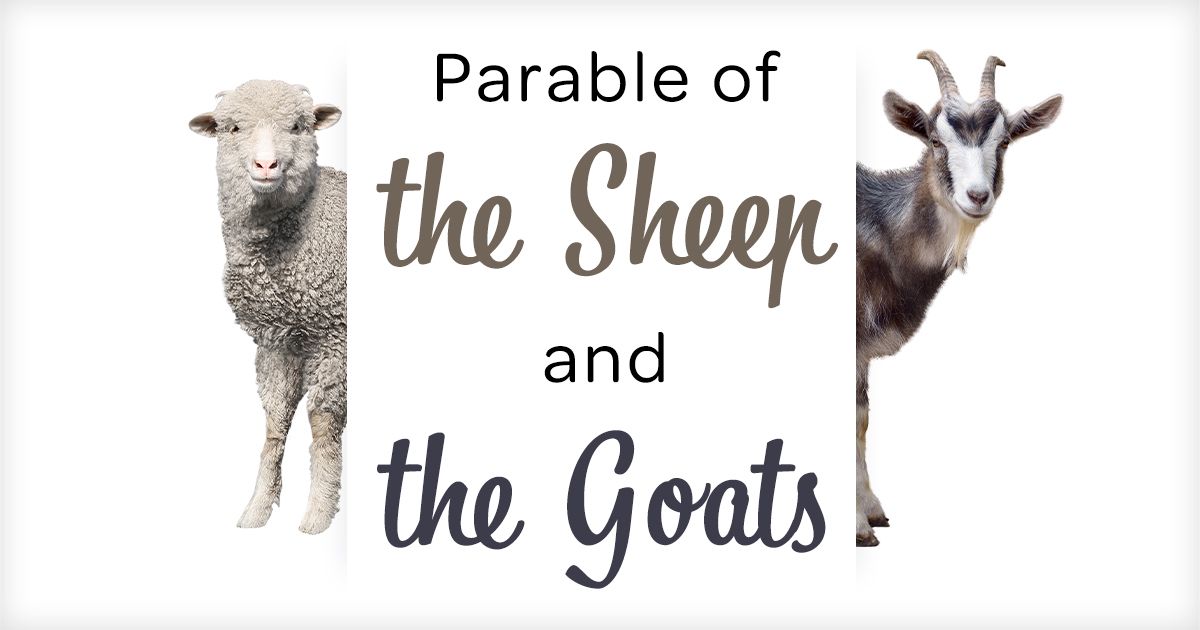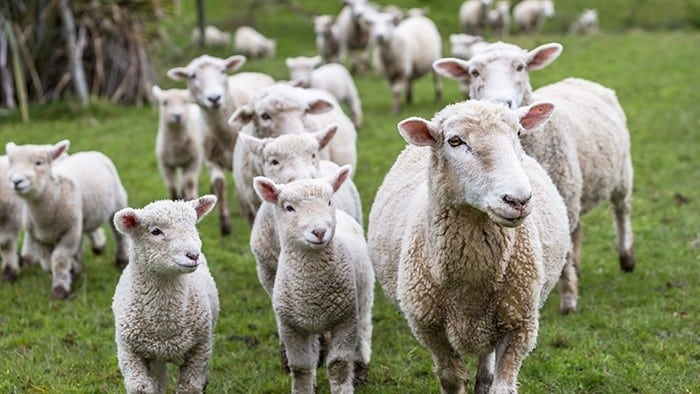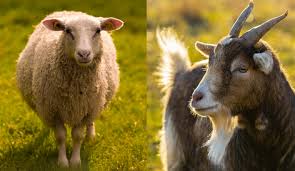Biblical Understanding: Sheep and Goats
 In the Bible, animals are often used metaphorically to represent various traits, behaviors, and characteristics of human beings. Among the most commonly used animals in biblical texts are sheep and goats. Their differences not only tell us about their physical traits but also about their symbolic significance in the spiritual context, particularly in the way followers of Christ are compared to sheep, and those who oppose Christ are compared to goats.
In the Bible, animals are often used metaphorically to represent various traits, behaviors, and characteristics of human beings. Among the most commonly used animals in biblical texts are sheep and goats. Their differences not only tell us about their physical traits but also about their symbolic significance in the spiritual context, particularly in the way followers of Christ are compared to sheep, and those who oppose Christ are compared to goats.
The Biblical Symbolism of Sheep
Sheep are often associated with purity, humility, and obedience. The Bible describes Jesus Christ as the Good Shepherd who takes care of His sheep, guiding them to safety, nourishment, and protection. In the Gospel of John 10:27, Jesus says, “My sheep hear my voice, and I know them, and they follow me.” This statement highlights the core qualities that define the followers of Christ: they trust in the voice of their shepherd, which in this case, represents Jesus Christ.
A key difference that sets sheep apart is their tendency to rely on their shepherd for guidance. Sheep are vulnerable creatures and do not have the means to defend themselves from predators. This is why they are completely dependent on the shepherd for their survival. If a sheep were to wander away from the flock, it is the shepherd’s responsibility to go after it, find it, and bring it back to the fold. This act symbolizes God’s care for His followers and how He leaves the 99 to seek out the one who is lost.
The shepherd not only guides the sheep to safety but also provides for them. In biblical terms, this is often seen as God providing for His people through Jesus Christ, offering them spiritual nourishment and protection. Sheep are seen as submissive to the shepherd’s voice, trusting that He knows what is best for them. The Biblical Symbolism of Goats
The Biblical Symbolism of Goats
On the other hand, goats are often used in scripture to symbolize those who reject God’s guidance. Goats do not follow a shepherd’s voice; instead, they are known for being independent and stubborn. In biblical times, goats were not as domesticated as sheep and were typically seen as less docile. This independence is one of the key differences between goats and sheep.
A goat’s behavior can be seen as a metaphor for those who follow their own path, ignore the guidance of God, and indulge in their own desires. As the image explains, goats do not have a shepherd they follow. Instead, they roam freely, grazing on whatever they desire. Their behavior is often a reflection of people who live selfishly, not submitting to divine guidance or authority. This is symbolized in the Bible when it refers to the separation of the sheep (those who follow Christ) and the goats (those who do not).
In Matthew 25:32-33, Jesus speaks of a final judgment where He separates the sheep from the goats. The sheep, representing the righteous, are placed on His right, and the goats, representing the wicked, are placed on His left. The distinction between the two is based on their actions, with the righteous being those who care for the needy, the poor, the sick, and the marginalized—essentially those who follow the commands of Christ.Spiritual Lessons from Sheep and Goats
The contrasting behavior of sheep and goats offers deep spiritual insights. The sheep represent those who follow Christ’s teachings, trust in His voice, and depend on Him for their guidance and protection. They are willing to surrender their will to the shepherd, knowing that He leads them to safety and peace.
Goats, on the other hand, symbolize a rebellious spirit that chooses independence over submission to God. Their refusal to follow the shepherd leads them to danger and destruction. The goat’s freedom is an illusion; without guidance, they are left vulnerable to the harsh realities of the world.
The lesson here is clear: those who trust and follow Christ, like the sheep, will find peace, protection, and eternal life. Those who choose to reject God’s voice, like the goats, are destined for a path of confusion and peril.
 Conclusion
Conclusion
In conclusion, the biblical difference between sheep and goats is not just about animals but serves as a profound metaphor for the spiritual journey of humanity. Sheep are obedient to the voice of their shepherd, while goats represent those who stubbornly resist and walk away from the shepherd’s guidance. In our daily lives, we must ask ourselves whether we are like the sheep, following the voice of our shepherd, or like the goats, rejecting God’s call.
As we reflect on these metaphors, let us remember the importance of listening to God’s voice, trusting in His guidance, and following His path for our lives. For, as the Bible assures us, the shepherd’s voice leads to salvation, peace, and eternal life.

